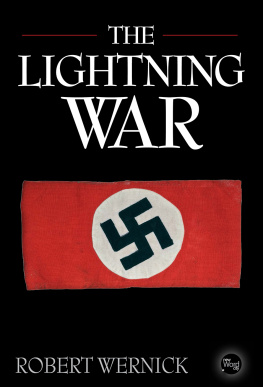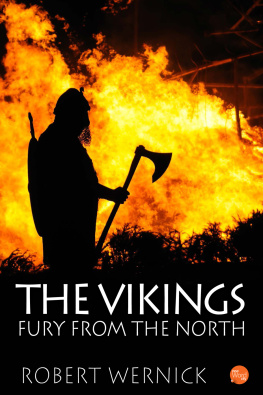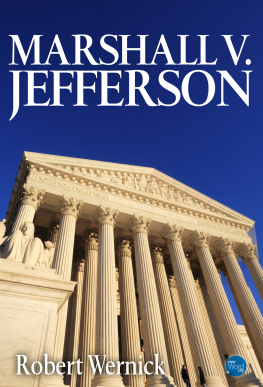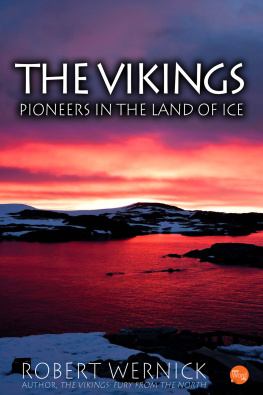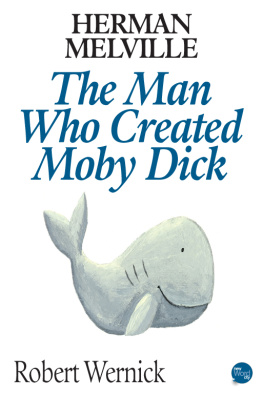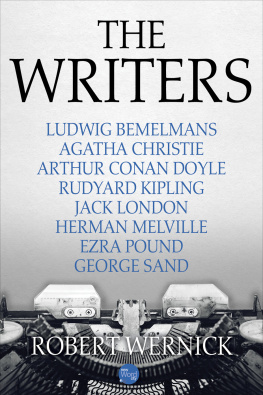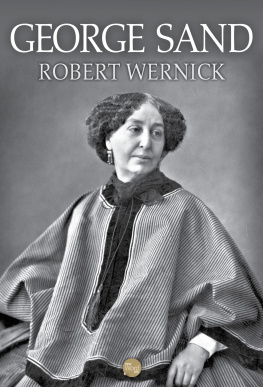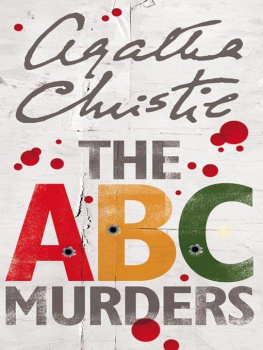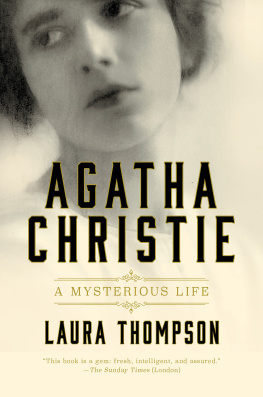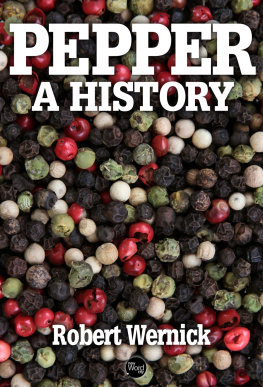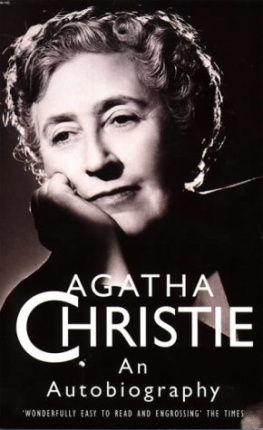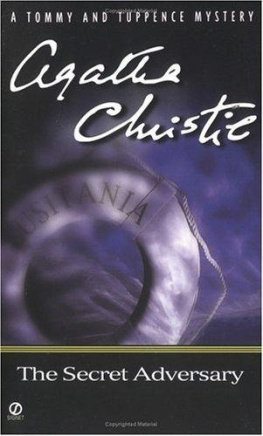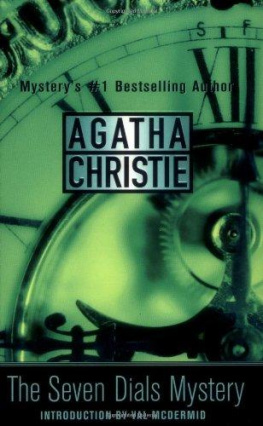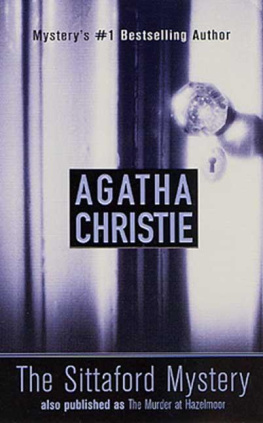Robert Wernick - Agatha Christie
Here you can read online Robert Wernick - Agatha Christie full text of the book (entire story) in english for free. Download pdf and epub, get meaning, cover and reviews about this ebook. year: 2017, publisher: New Word City, Inc., genre: Non-fiction. Description of the work, (preface) as well as reviews are available. Best literature library LitArk.com created for fans of good reading and offers a wide selection of genres:
Romance novel
Science fiction
Adventure
Detective
Science
History
Home and family
Prose
Art
Politics
Computer
Non-fiction
Religion
Business
Children
Humor
Choose a favorite category and find really read worthwhile books. Enjoy immersion in the world of imagination, feel the emotions of the characters or learn something new for yourself, make an fascinating discovery.
- Book:Agatha Christie
- Author:
- Publisher:New Word City, Inc.
- Genre:
- Year:2017
- Rating:4 / 5
- Favourites:Add to favourites
- Your mark:
- 80
- 1
- 2
- 3
- 4
- 5
Agatha Christie: summary, description and annotation
We offer to read an annotation, description, summary or preface (depends on what the author of the book "Agatha Christie" wrote himself). If you haven't found the necessary information about the book — write in the comments, we will try to find it.
Dame Agatha Christies words and thoughts live on in her amazing body of work, and the Queen of Crime, as the mystery writer was dubbed in her lifetime, shows every sign of lasting. Here, in this essay by award-winning journalist Robert Wernick, is her surprising and little-told story.
Agatha Christie — read online for free the complete book (whole text) full work
Below is the text of the book, divided by pages. System saving the place of the last page read, allows you to conveniently read the book "Agatha Christie" online for free, without having to search again every time where you left off. Put a bookmark, and you can go to the page where you finished reading at any time.
Font size:
Interval:
Bookmark:
Ask some of your more literate friends to name the bestselling novelist of all time. They will probably come up with a Great Name, one that fills pages of textbooks and occupies a revered place on their bookshelves.
Charles Dickens, perhaps. Or Mark Twain. Or Leon Tolstoy.
They will be wrong.
The winner, with sales of some four billion copies, is Agatha Christie. She runs a close second to the greatest of names, William Shakespeare, for sales by an author in any genre. (Of course, the Bible has outsold both Christie and Shakespeare. But the Bible in its present form was composed by at least three dozen authors over a period of several hundred years.)
It may seem odd, not to say preposterous, to mention Shakespeare and Agatha Christie in the same breath. In his own figure of speech, Shakespeare bestrides our narrow world like a colossus with his endless variety of extraordinary characters, insights, incidents, passions, profundities, frivolities, charmed lives, and hideous deaths. What might he have to do with the writer of more or less interchangeable accounts of the search for clues to an improbable succession of murders in English country houses or archeological sites in the Middle East? Where Shakespeare illuminates great historical events and plunges deep into the human soul, Christie untangles intricate crimes in which there seem to be no - or all too many - suspects.
Can you imagine any respectable professor assigning students to make a comparative analysis of long passages from Murder on the Orient Express and King Lear, to contract The Tragedy of Hamlet Prince of Denmark with Death on the Nile, or to find parallels between Murder at the Vicarage and A Midsummers Nights Dream? Agatha Christie may have earned her title as the Queen of Crime, but her work simply doesnt count as literature. As the critic Edmund Wilson sniffed in a celebrated essay in the New Yorker magazine many years ago, Who cares who killed Roger Ackroyd?
That highbrow disdain is understandable, but if we stop thinking of literature for the moment and consider these two authors simply as people from rural England who lived some four centuries apart and aimed to make a living in the world of their times, we will find striking parallels between the lives of Will Shakespeare and Agatha Christie.
Both were born in provincial English towns to upwardly mobile, middle-class families. Both grew to be strong and lively with keen insight, sharp brains, and a consuming curiosity about the lives, loves, interests, and emotions of the people among whom they lived. Both had an urge to tell their neighbors stories, and the rare gift of being able to tell them in a way that compelled readers or watchers to find out what was going to happen next, page after page, scene after scene, until they came to The End.
Shakespeare and Christie both had the good fortune to arrive on their respective scenes at a moment when new literary forms uniquely well-suited to their talents - had taken shape and were attracting large and increasingly educated audiences.
In Shakespeares case, it was the theater. Far removed from the traditional church- or state-sponsored performances passion plays, gladiatorial spectacles, and the like these were private enterprises that had built or acquired indoor space and put up a stage on which a troupe of actors could mount a collection of plays written especially for them, and for which the public would buy a ticket for a few hours of pleasantly stimulating relief from the aches and boredoms of daily life.
This kind of theater began in London just a few years before Shakespeare was born in 1564. By the time he came to the city in his early twenties to seek his fortune, such plays had acquired a strictly defined structure: three or so fascinating hours of characters performing through five acts of complicated situations. The predicaments would rise to a climax before working themselves out, and most often they would end with a happy marriage or a sorrowful death - all recited in the supple iambic pentameter called blank verse. That, at least, was true when wellborn characters were speaking. Common people performing on stage spoke in the lively vernacular of the London streets. Shakespeare never deviated from this strict model, though he knew how to apply it to a nearly infinite variety of characters and situations.
His latter-day counterpart, Agatha Christie, was born Agatha Mary Clarissa Miller on September 15, 1890, about the same time the detective story was coming into its own. Edgar Allan Poes short story, The Murders in the Rue Morgue had introduced the genre a half-century earlier. Now its classical shape was taking form in the hands of writers like Arthur Conan Doyle with his fictional sleuth, Sherlock Holmes, the eccentric opium- and cocaine-using investigator, who marshaled his powers of observation and analysis to solve crimes and shackle criminals.
Like Shakespeare, Christie stuck to her winning formula: Describe the murder, usually off-scene and not particularly grisly or bloody (poison was a favorite weapon); set out the clues that will lead to the culprit, but only when understood by her talented detective; let the sleuth analyze the crime and reveal the name of the killer, to the astonishment of the assembled cast. Christies genius and abiding popularity lay in the astounding variety of crime scenes she conjured and the distinctive tics and traits of her two principal detectives, Hercule Poirot and Miss Jane Marple, all of which kept her public crying for more. And those readers span the globe: Christies works have been translated into 103 languages.
In twenty-odd years, Shakespeare - in addition to his daily routine of acting, rehearsing, and directing - dreamed up, worked out, and wrote nearly forty plays as well as three lengthy narrative poems and 154 sugard sonnets that circulated among his private friends.
In fifty-odd years, Christie turned out ninety-four books - detective novels under her own name, romance novels using the pseudonym Mary Westmacott, collections of short stories. She also wrote seventeen stage plays but never produced an original screenplay.
Her stage play, The Mousetrap, which opened at Londons Ambassadors Theatre on November 25, 1952, before being transferred to St. Martins Theatre, was her most astonishing phenomenon: It has been playing in the same venue ever since. There have been more than 24,600 performances, making it the longest first run of a stage play ever recorded. To underscore Mousetraps longevity, BBC News pointed out that Winston Churchill still lived at Number 10 Downing Street and Joseph Stalin ruled Russia when the curtain first rose on Christies monumental success. Its safe to say that The Mousetrap has become a British landmark, rivaling Big Ben and Covent Garden. (Not for the first time, Christie disagreed with her fans. Her own favorite among her plays was Witness for the Prosecution.)
And then theres Christies best-selling novel, And Then There Were None: It has sold more than 100 million copies, landing it in a stellar crowd of the bestselling books of all time. Renamed the TenLittle Indians by its U.S. publisher, the novel tells the tale of ten unpunished villains, summoned to an island to be killed off, one at a time, by a retired judge with an implacable craving for justice. The book has been adapted for stage, film, radio, television, and video-game audiences.
In addition to her murder mysteries, the prolific author wrote a childrens story, a book of verse and two autobiographies, the last one entitled simply, An Autobiography. Discovered after her death, it recalls her life from childhood to old age - though, as she admitted, it didnt follow every event in scrupulous detail. Instead, Christie said, I wanted to plunge my hand into a lucky dip and come up with a handful of assorted memories. The first accounting,
Next pageFont size:
Interval:
Bookmark:
Similar books «Agatha Christie»
Look at similar books to Agatha Christie. We have selected literature similar in name and meaning in the hope of providing readers with more options to find new, interesting, not yet read works.
Discussion, reviews of the book Agatha Christie and just readers' own opinions. Leave your comments, write what you think about the work, its meaning or the main characters. Specify what exactly you liked and what you didn't like, and why you think so.


